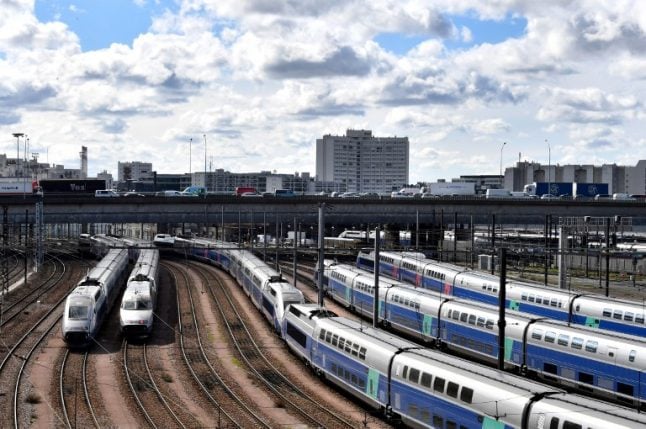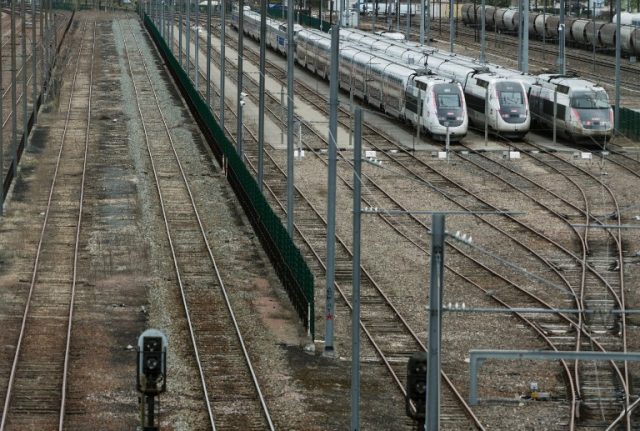Train drivers and other staff launched three months of strikes on April 3 in a bid to force Macron to back down on plans for an overhaul of the heavily indebted state rail operator SNCF.
They are set to continue two days out of every five until June 28, causing havoc for France's 4.5 million daily train passengers.
But Macron insisted on Thursday that he would push on with reforms designed to make the SNCF cheaper to operate as European passenger rail markets open to competition from 2020.
“I am going to see this through to the end,” he told TF1 in his first public remarks on a standoff that commentators have compared to late British premier Margaret Thatcher's 1980s battle with coal unions.
A third of high-speed TGV and regional TER trains were running Friday, a marked increase on last week's strike when as few as one in eight TGVs ran as normal.
Eurostar services to London were operating normally and Thalys trains towards Belgium and the Netherlands were suffering only light disruption.
Train traffic will also be disrupted on Saturday but will return to normal on Sunday until the next planned strike day on April 18.
In Paris, the Metro and buses will be working as normal, but the RER services linking the capital to its suburbs will be disrupted from Thursday evening:
- On the RER A, 1 out of 2 trains will run on the Cergy-Poissy line on Friday.
- On the RER B Nord, 3 out of 5 trains will run on Friday with no connection at the Gare du Nord.
- On the RER C, 1 out of 4 trains will run on Thursday evening and 2 out of 3 on Friday.
- On the RER D, 1 out of 3 trains will run on Thursday evening and 3 out of 5 on Friday with no connections at the Gare du Nord and Gare de Lyon.
- On the RER E, 1 out of 3 trains will run on Thursday evening and 2 out of 3 on Friday.

The ease in the strike action came as a relief to families as schools in the Paris region as well as the southern cities of Toulouse and Montpellier headed off on holiday.
The SNCF said 38 percent of the staff necessary for operating trains were taking part in Friday's strike — a marked drop from 48 percent in the first
strikes last week, though a slight three percent increase from the second wave last Sunday.
Unions reacted angrily to Macron's speech, saying it made them even more determined to push on with their strike action.
The CGT union blasted him as “a hesitant president who didn't say much, who in all likelihood has not got a good understanding of the reform plans, and who, far from reassuring us, has strengthened the determination of the rail workers”.
The unions object to plans to deny new SNCF recruits benefits such as jobs for life and early retirement, and fear Macron's proposal to transform the
operator into a state-owned joint stock company could eventually see it privatised.
On Friday, however, CFDT union chief Laurent Berger said there had been tentative steps forward in discussions between the two sides, notably in terms of how to open the network to foreign competitors.
“There have been a few openings on certain subjects,” Berger told RTL radio. “Now we need to move forward with the others.”
READ ALSO: The days to avoid plane and travel in France this spring




 Photo: AFP
Photo: AFP Please whitelist us to continue reading.
Please whitelist us to continue reading.
Member comments